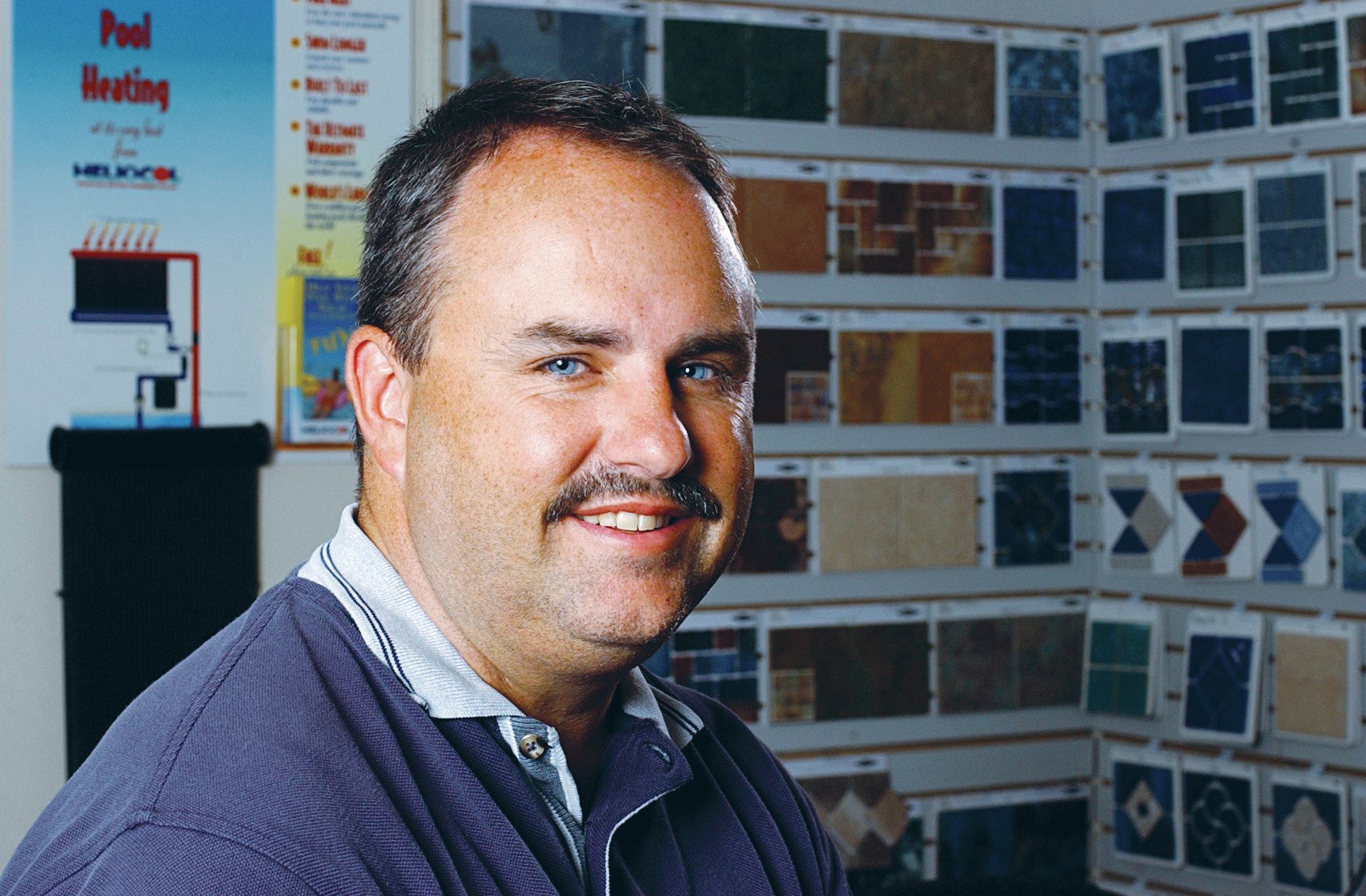In 2006, we built about 300 pools — no renovations, 300 brand-new pools. By the end of 2008, we were down to 116.
In those two years, we laid off several people. Others left and their positions weren’t replaced. We downsized the construction crew and superintendents. We kept our 401(k) plan, but no longer matched contributions. We froze salaries after 2008 for a couple of years, and management took a pay cut.
At that time, we also had to step back into the company rather than just run it. My brother went from being a sales manager to selling pools, and I had to go back into running operations and construction, as opposed to overseeing it. We added remodeling and commercial work.
But while some of those cuts were painful during that time, we were also able to become leaner and more efficient.
Building fewer pools allowed us to get a better measurement of profits and we were able to ascertain where we wanted to be with our pricing, even with the competition being so strong. By the end of 2009, we found that even though we built about the same number of pools as in 2008, our gross profits actually were a couple of percentage points higher than in the boom years. We were making a higher gross profit with each job.
This made us confident that we could adjust to anything.
Then in 2010, some home builders started contracting pools again, and we saw our numbers increase by 40 pools. We said, “OK, we can still handle this. We don’t need to add staff.”
The next year we hired one person, but we grew another 40 pools. We got through it, built all those pools and thought we were fine. Then we got into 2012 and said, “Well, if we can do the same, we should be OK with our current staff.”
But by spring, I knew I needed another superintendent.
Despite being clearly understaffed, we were reluctant to hire. If things dropped again, we’d have to lay people off, and while I know it’s a business decision, it makes me sick to my stomach. Who wants to tell somebody, “You don’t have a job anymore”? Also, I didn’t want to bring on an extra salary, truck, phone and insurance, only to wind up not needing them.
We went through summer and were so busy that the guys got a little harried. We decided to bring in an operations manager to oversee construction so I could work more on the business.
Yet we still resisted making changes. We were worried that our numbers could contract again, especially because a good part of this new business came from home builders. On the other hand, if things grew any more, we’d be inviting errors and wouldn’t be able to rectify them quickly enough.
Finally, we just said, “Look, we’re growing. We have to do what we need to do. If it goes the other way, it goes the other way, and we make adjustments. We’ve already done it once; we could do it again. But right now we’re growing and need to make changes.”
We basically doubled our business again. Because of that, we brought in another superintendent and staff. Now we have fewer mistakes, and if there is a problem, it gets rectified more quickly because I have more time and that’s what I’m brought in to do. And the guys have less pressure on them because we have the extra help.
We’re making other investments as well. Now we have new trucks for everybody. We had gotten a lot of use out of our old ones — most of them were about eight years old. It was time. Three years ago if we needed to get a truck, I would have said, “I don’t want to.”
This year we’re investing in developing our Internet presence, revamping our website, bringing in social media, adding video and blogging. I felt it was time to grow in that area, and I’m able to work on that now because I’m not on the phone with three or four people managing things.
When the boom came, everything was happening so fast, and so many pools were being sold that it was really hard to stay on top of our profit on a monthly basis. Everyone was very busy and we’d basically have our accountant roll everything up on a quarterly basis and tell us if we were making money or not.
I don’t do that anymore. I have an accountant, and we get together once a month. I also look at the numbers and measure the individual profit and loss on each job. If we didn’t do as well on a project as we should have, we look into the reasons why. Did we overpay something? What mistakes occurred? Did our salesman underprice the pool?
If I see materials, freight or manufacturing costs go up, I can now adjust our pricing much more quickly than before, and I’m not going to wait for an accountant to tell me about it in the next quarter. My job is to be on top of those financials weekly to check cash flow, and monthly to manage what each job is doing, and then make corrections.
I also learned never to take the numbers for granted and not assume they are going to go up every year. You can’t. The first time you do that and start spending money that you don’t really have — that’s how a lot of people suffer.
With those lessons, we’re confident now that if for some reason we went back to 100 pools, we’d know exactly what to do to stay in business and still make a profit because we’ve been through it.
Ken McKenna Jr.
McKenna is the president of Tampa Bay Pools in Brandon, Fla., a Pool & Spa News Top Builder. He joined the company, founded by his father, in 2002 after
working 14 years in the banking industry.


